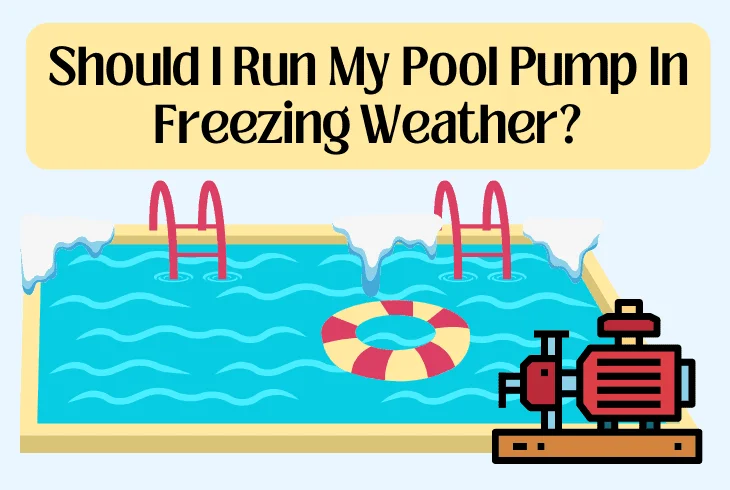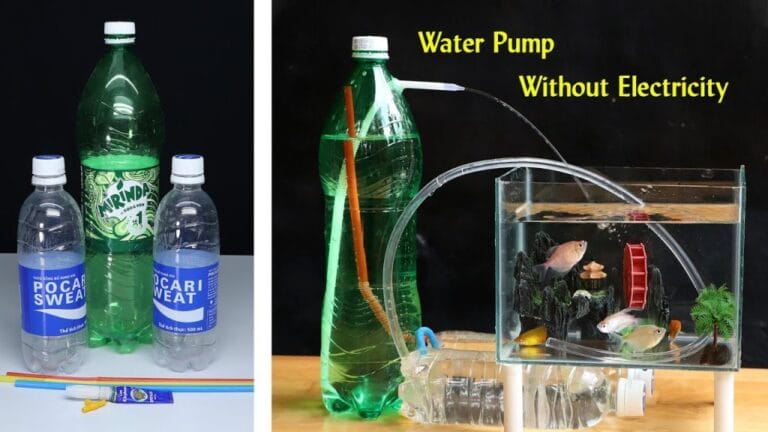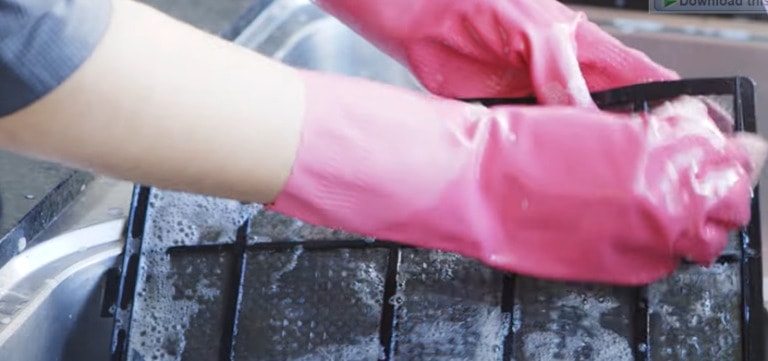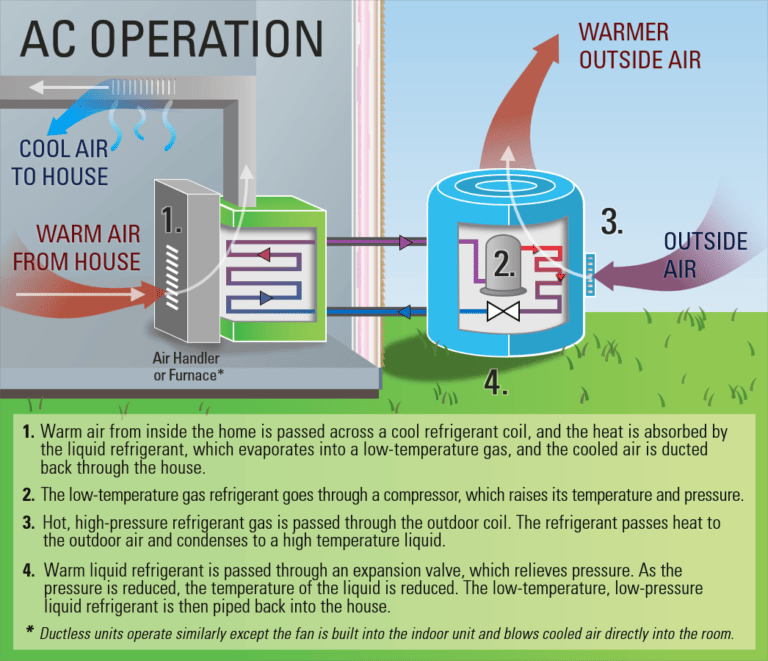
Do you have a pool and are wondering if running the pool pump can prevent freezing? Well, you’ve come to the right place! In this article, we’ll explore whether running the pool pump can help prevent freezing and what steps you can take to protect your pool during the colder months.
Winterizing your pool is an essential task to ensure its longevity and avoid costly repairs. One of the key considerations is preventing freezing, as freezing temperatures can cause significant damage to your pool’s equipment and plumbing.
So, let’s dive in and find out if running the pool pump can indeed prevent freezing and what other measures you can take to keep your pool in top-notch condition during the winter months.
Will Running Pool Pump Prevent Freezing?
A running pool pump can help prevent freezing in your pool during cold weather. By continuously circulating the water, it prevents it from becoming stagnant and freezing. This circulation also helps distribute heat evenly, reducing the chances of freezing.
Additionally, running the pump at a low speed during freezing temperatures can further prevent freezing by keeping the water moving. Regularly maintaining your pool pump and ensuring it’s in good working condition is essential for preventing freezing.
How Does the Pool Pump Prevent Freezing?
When it comes to preventing freezing, the pool pump plays a crucial role in maintaining the circulation and preventing stagnant water in the pool plumbing. Running the pool pump continuously during cold weather helps to keep the water moving, which reduces the likelihood of freezing.
The constant flow of water helps to distribute heat evenly, especially when combined with a pool heater or other heating mechanisms. Additionally, the movement of the water prevents ice formation and ensures that the pool plumbing remains clear and functional.
The Science Behind Freezing: How Cold Temperatures Affect Pools
Understanding the science behind freezing is essential to comprehend the significance of running the pool pump during winter. When water freezes, it expands, and this expansion can cause severe damage to pool equipment and plumbing.
As the temperature drops, any standing water in the pool plumbing can freeze and expand, potentially leading to burst pipes, cracked pool walls, and other costly repairs. By keeping the pool pump running, the water circulates constantly, preventing it from reaching the freezing point and reducing the risk of damage caused by expanding ice.
It’s important to note that while running the pool pump can significantly reduce the risk of freezing, it should be done in conjunction with other winterizing techniques.
These may include adding antifreeze to the plumbing lines, covering the pool with a winter pool cover, and adjusting the pool chemical levels to appropriate ranges for colder temperatures. By combining these strategies, pool owners can ensure their pool remains protected against freezing throughout the winter season.
Benefits of Running the Pool Pump During Winter
Running the pool pump during winter offers several benefits beyond preventing freezing. These include:
- Maintaining Water Quality: Continuous circulation helps to distribute chemicals evenly, preventing algae growth and maintaining balanced water chemistry.
- Reducing Stagnant Debris: Moving water prevents debris from settling, reducing the need for manual cleaning when the pool is reopened.
- Minimizing Pump Damage: Regular operation of the pool pump during winter avoids potential damage caused by long periods of inactivity.
Tips for Running the Pool Pump During Winter
If you decide to run your pool pump during winter, keep in mind the following tips:
1. Adjust the Pump Runtime:
While it’s important to keep the pump running, you may need to adjust the runtime to fit the specific needs of your pool. Factors such as pool size, climate, and temperature fluctuations should be considered when determining the appropriate runtime.
2. Monitor Pool Chemical Levels:
Regularly test and adjust the pool chemical levels to ensure proper balance. Maintain appropriate chlorine and pH levels to prevent algae growth and maintain clear water.
3. Use a Pool Cover:
Avoid unnecessary heat loss and debris accumulation by using a pool cover specifically designed for winter. This will help to retain heat and reduce the workload on the pool pump.
4. Winterize the Plumbing:
In addition to running the pool pump, consider winterizing the plumbing lines with antifreeze. This extra step adds an additional layer of protection and prevents freezing within the plumbing system.
5. Monitor Weather Conditions:
Stay informed about upcoming weather conditions and adjust your pool maintenance routine accordingly. In extremely cold temperatures, additional precautions may be necessary to protect your pool.
Running the pool pump during winter can help prevent freezing and protect your pool from costly damage. By understanding the science behind freezing, the role of the pool pump, and following best practices for winterizing, pool owners can ensure their pool remains in good condition throughout the winter months.
Remember to adjust the pump runtime, monitor chemical levels, use a pool cover, winterize the plumbing, and stay aware of weather conditions. With these precautions in place, you can enjoy a hassle-free pool opening when spring arrives.
Frequently Asked Questions
Running the pool pump can help prevent freezing by circulating water, but it’s important to understand how it works and what other measures you should take to protect your pool. Here are some commonly asked questions about running a pool pump to prevent freezing.
1. How does running the pool pump prevent freezing?
Running the pool pump prevents freezing by circulating the water in your pool. As water moves through the pipes and equipment, it loses less heat than still water, reducing the risk of freezing. The constant flow of water also discourages ice formation on the surface of the pool. However, it’s important to note that running the pump alone may not be sufficient to prevent freezing in extreme cold temperatures.
To enhance the effectiveness of running the pool pump, you may need to implement additional measures such as insulating your pipes, using a pool cover, or utilizing a freeze protection device. These measures work collectively to provide additional layers of protection against freezing.
2. Can running the pool pump prevent freezing completely?
While running the pool pump can help prevent freezing, it does not guarantee complete protection. In extremely low temperatures, even a running pump may not be able to prevent freezing. Factors such as the severity and duration of cold weather, the size of your pool, and the efficiency of your equipment can all play a role in determining the effectiveness of running the pump alone.
To ensure maximum protection against freezing, it’s recommended to combine running the pool pump with other proactive measures. This can include adjusting the pool timer to higher run times, insulating exposed pipes, using a thermal blanket, or installing a freeze protection device, which automatically activates if freezing conditions are detected.
3. Can running the pool pump damage the equipment?
Running the pool pump, if done correctly, should not damage the equipment. Pumps are designed to operate for extended periods, including during cold weather. However, there are a few precautions to keep in mind. Make sure your pump and equipment are in good condition, as faulty components could be more susceptible to damage in freezing temperatures.
If you experience unusually low temperatures, keep an eye on the pump to ensure it is functioning properly. Inspect for any leaking water, unusual noises, or a decrease in water flow. If you notice any issues, it’s best to turn off the pump and contact a pool professional to assess the situation.
4. Should I run the pool pump continuously during freezing weather?
While running the pool pump continuously during freezing weather may provide additional protection, it’s not always necessary. In milder cold conditions, running the pump for a few hours at night can be sufficient. However, in more extreme temperatures, it may be safer to keep your pump running continuously to ensure a consistent flow of water.
Ultimately, the duration and frequency of running the pool pump will depend on factors such as the severity of the cold weather, the size of your pool, and the efficiency of your equipment. It’s best to consult with a pool professional who can provide personalized advice based on your specific circumstances.
5. Can I rely solely on running the pool pump to prevent freezing?
While running the pool pump is an important preventive measure, relying solely on it may not be enough to guarantee protection against freezing. Extreme cold temperatures can pose a significant risk to your pool, and additional measures should be implemented.
In addition to running the pump, consider adding insulation to exposed pipes, using a pool cover or thermal blanket to minimize heat loss, and employing a freeze protection device for an extra layer of defense. By combining these measures, you can create a comprehensive strategy to protect your pool from freezing and potential damage.






